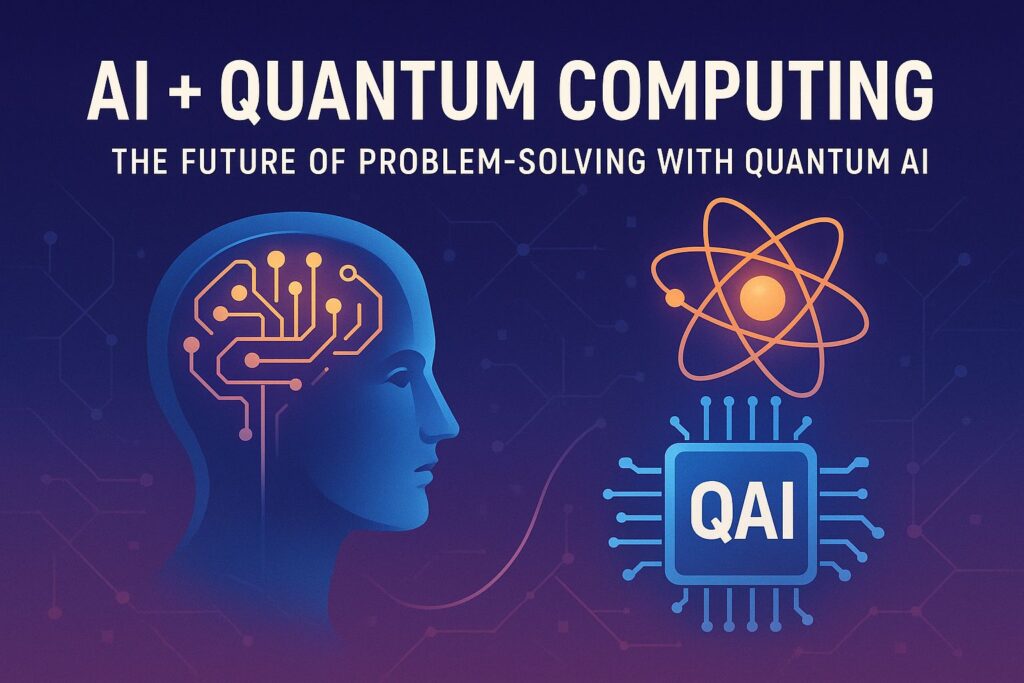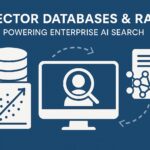Artificial Intelligence (AI) is already changing how we live and work. But when combined with Quantum Computing, it has the potential to redefine problem-solving at a scale never seen before. Welcome to the future of Quantum AI—a powerful fusion that could tackle problems beyond the reach of today’s classical computers.
In this blog, we’ll break down what Quantum AI is, why it matters, and how it’s shaping the future of innovation in 2025 and beyond.
What is Quantum AI?
- AI (Artificial Intelligence): Uses algorithms and data to mimic human intelligence, enabling machines to learn, adapt, and make decisions.
- Quantum Computing: A new kind of computing that uses qubits (quantum bits) instead of traditional binary bits. Qubits can exist in multiple states at once, making calculations exponentially faster for certain problems.
When you combine AI with Quantum Computing, you get Quantum AI—an advanced system capable of solving problems that classical AI alone cannot handle efficiently.
Why Quantum AI Matters
Traditional computers, no matter how powerful, struggle with complex optimization, simulations, and massive datasets. Quantum AI opens the door to:
- Faster Problem-Solving – AI models that currently take days to train could be optimized in minutes with quantum systems.
- Deeper Insights from Big Data – Handling huge amounts of unstructured data for better predictions.
- Unlocking New Possibilities – From designing new drugs to optimizing global logistics, Quantum AI could change industries forever.
Applications of Quantum AI in 2025 and Beyond
1. Drug Discovery & Healthcare
Quantum AI can simulate molecules at atomic levels, enabling faster drug design and personalized medicine.
2. Financial Modeling
Banks and investors use Quantum AI for risk assessment, fraud detection, and faster trading algorithms.
3. Climate Modeling
Accurately simulating complex environmental systems to fight climate change.
4. Logistics & Supply Chains
Optimizing global supply chains, reducing costs, and making operations more sustainable.
5. Cybersecurity
Quantum AI enhances encryption methods while also posing challenges to existing security systems.
6. AI Model Training
Quantum computing can accelerate neural network training, improving generative AI and machine learning performance.
Challenges of Quantum AI
While the potential is enormous, Quantum AI in 2025 is still in its early stages. Key challenges include:
- Hardware Limitations: Quantum computers are still experimental and expensive.
- Scalability: Building stable qubits for large-scale computation is difficult.
- Talent Gap: Few professionals have expertise in both AI and quantum computing.
- Ethical & Security Risks: Quantum AI could be misused if not regulated properly.
Future of Quantum AI
By 2030, Quantum AI may move from research labs to real-world applications, enabling:
- Ultra-fast simulations for space exploration and materials science.
- AI assistants powered by quantum systems, capable of solving multi-dimensional problems in seconds.
- Global breakthroughs in medicine, sustainability, and science.
Quantum AI won’t replace classical computing but will complement it, tackling problems too complex for today’s systems.
Conclusion
AI + Quantum Computing is not just the future—it’s the next revolution in problem-solving. From drug discovery to financial modeling and climate science, Quantum AI has the power to transform industries and solve challenges once thought impossible.
The journey is just beginning, but one thing is clear: Quantum AI will reshape the way we think, innovate, and solve problems in the next decade.



